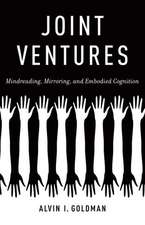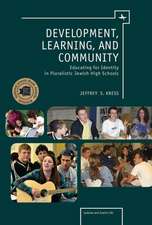Concord and Reform: Nicholas of Cusa and Legal and Political Thought in the Fifteenth Century: Variorum Collected Studies
Autor Morimichi Watanabe, Thomas M. Izbickien Limba Engleză Hardback – 24 mai 2001
Din seria Variorum Collected Studies
- 9%
 Preț: 938.85 lei
Preț: 938.85 lei -
 Preț: 311.41 lei
Preț: 311.41 lei -
 Preț: 351.48 lei
Preț: 351.48 lei -
 Preț: 313.38 lei
Preț: 313.38 lei -
 Preț: 386.77 lei
Preț: 386.77 lei -
 Preț: 325.68 lei
Preț: 325.68 lei -
 Preț: 396.00 lei
Preț: 396.00 lei -
 Preț: 312.75 lei
Preț: 312.75 lei - 9%
 Preț: 1041.23 lei
Preț: 1041.23 lei -
 Preț: 258.66 lei
Preț: 258.66 lei -
 Preț: 299.55 lei
Preț: 299.55 lei - 9%
 Preț: 938.08 lei
Preț: 938.08 lei -
 Preț: 343.33 lei
Preț: 343.33 lei -
 Preț: 311.18 lei
Preț: 311.18 lei - 9%
 Preț: 937.13 lei
Preț: 937.13 lei -
 Preț: 351.41 lei
Preț: 351.41 lei -
 Preț: 320.00 lei
Preț: 320.00 lei - 34%
 Preț: 764.20 lei
Preț: 764.20 lei - 23%
 Preț: 315.48 lei
Preț: 315.48 lei - 36%
 Preț: 740.06 lei
Preț: 740.06 lei - 34%
 Preț: 764.20 lei
Preț: 764.20 lei - 34%
 Preț: 680.73 lei
Preț: 680.73 lei - 26%
 Preț: 247.40 lei
Preț: 247.40 lei - 34%
 Preț: 485.78 lei
Preț: 485.78 lei - 38%
 Preț: 766.91 lei
Preț: 766.91 lei - 34%
 Preț: 767.07 lei
Preț: 767.07 lei - 34%
 Preț: 764.20 lei
Preț: 764.20 lei - 34%
 Preț: 769.51 lei
Preț: 769.51 lei - 38%
 Preț: 769.85 lei
Preț: 769.85 lei - 34%
 Preț: 826.68 lei
Preț: 826.68 lei - 25%
 Preț: 225.28 lei
Preț: 225.28 lei - 25%
 Preț: 225.54 lei
Preț: 225.54 lei - 34%
 Preț: 736.38 lei
Preț: 736.38 lei - 34%
 Preț: 738.43 lei
Preț: 738.43 lei - 25%
 Preț: 226.52 lei
Preț: 226.52 lei - 33%
 Preț: 491.66 lei
Preț: 491.66 lei - 34%
 Preț: 485.78 lei
Preț: 485.78 lei - 34%
 Preț: 485.78 lei
Preț: 485.78 lei - 36%
 Preț: 739.17 lei
Preț: 739.17 lei - 38%
 Preț: 766.34 lei
Preț: 766.34 lei - 31%
 Preț: 473.94 lei
Preț: 473.94 lei - 18%
 Preț: 843.61 lei
Preț: 843.61 lei - 38%
 Preț: 774.91 lei
Preț: 774.91 lei - 38%
 Preț: 769.92 lei
Preț: 769.92 lei - 34%
 Preț: 764.20 lei
Preț: 764.20 lei - 51%
 Preț: 485.78 lei
Preț: 485.78 lei - 36%
 Preț: 488.49 lei
Preț: 488.49 lei - 34%
 Preț: 769.10 lei
Preț: 769.10 lei - 38%
 Preț: 766.99 lei
Preț: 766.99 lei - 18%
 Preț: 1019.01 lei
Preț: 1019.01 lei
Preț: 764.20 lei
Preț vechi: 1154.58 lei
-34% Nou
Puncte Express: 1146
Preț estimativ în valută:
146.23€ • 152.67$ • 121.02£
146.23€ • 152.67$ • 121.02£
Carte tipărită la comandă
Livrare economică 04-18 aprilie
Preluare comenzi: 021 569.72.76
Specificații
ISBN-13: 9780860788508
ISBN-10: 0860788504
Pagini: 362
Dimensiuni: 150 x 224 mm
Greutate: 0.45 kg
Ediția:1
Editura: Taylor & Francis
Colecția Routledge
Seria Variorum Collected Studies
Locul publicării:Oxford, United Kingdom
ISBN-10: 0860788504
Pagini: 362
Dimensiuni: 150 x 224 mm
Greutate: 0.45 kg
Ediția:1
Editura: Taylor & Francis
Colecția Routledge
Seria Variorum Collected Studies
Locul publicării:Oxford, United Kingdom
Cuprins
Contents: Acknowledgement, Thomas M. Izbicki and Gerald Christianson; Preface, Morimichi Watanabe; Introduction, Francis Oakley; Law and Society: The lawyer in an age of political and religious confusion: some 15th-century conciliarists; Humanism, law and reform: reflections on 15th-century lawyers; Nicholas of Cusa: The origins of modern Cusanus research in Germany and the establishment of the Heidelberg Opera Omnia; Authority and consent in church government: Panormitanus, Aeneas Sylvius, Cusanus; The episcopal election of 1430 in Trier and Nicholas of Cusa; Nicholas of Cusa, the Council of Florence and the Acceptation of Mainz (1439); The German Church shortly before the Reformation: Nicolaus Cusanus and the Veneration of the Bleeding Hosts at Wilsnack; Nicholas of Cusa and the Tyrolese monasteries: reform and resistance; Nicolaus Cusanus, monastic reform in the Tyrol and the De Visione Dei; Nicholas of Cusa and reform of the Roman Curia; Nicholas of Cusa, A General Reform of the Church; Nicholas of Cusa and the idea of tolerance; Cusanus’ Contemporaries: Nicholas of Cusa - Richard Fleming - Thomas Livingston; Humanism in the Tyrol: Aeneas Sylvius, Duke Sigismund, Gregor Heimburg; Gregor Heimburg and early humanism in Germany; Duke Sigismund and Gregor Heimburg; Imperial reform in the mid-15th century: Gregor Heimburg and Martin Mair; Indexes.
Notă biografică
Morimichi Watanabe, Professor Emeritus of History and Political Science, C.W. Post Campus, Long Island University, USA
Descriere
Nicholas of Cusa is known as one of the most original philosophers of the 15th century, but by training he was a canon lawyer who received his degree from the University of Padua in 1423. The essays in this book analyse his legal and political ideas against the background of medieval religious, legal and political thought and its development in the Renaissance. The first two pieces deal with the legal ideas and humanism that affected Cusanus and with some of the problems faced by 15th-century lawyers, including his friends. The central section of the book also discusses how he reacted to the religious, legal and political issues of his day; Cusanus as reformer of the Church is a theme that runs through many of the essays. The final studies look at some of Cusanus' contemporaries, with special emphasis on Gregor Heimburg, the sharpest critic of Cusanus.















